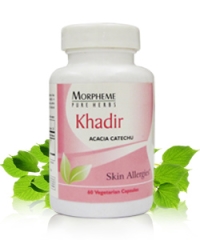Table of Contents
Psoriasis is a type of chronic skin condition characterized by red dry plaques on the skin. It usually affects the skin of the knees, elbows and scalp. Severe psoriasis can affect the entire body. People with psoriasis experience flare-ups followed by periods of remissions where the skin remains clear of the dry patches for several months and sometimes for years.
There are several treatment options for psoriasis. Mild psoriasis flare-ups can be treated with ointments, lotions or sprays. Hard-to-treat psoriasis that does not respond to topical medications may require steroid injections that are directly injected into the affected areas of the skin.
Topical medications are usually unsuitable for treating moderate to severe psoriasis that covers large areas of the skin. Severe psoriasis usually responds to ultra violet light therapy.
To ensure maximum effectiveness of the different treatment options and minimizing adverse reactions of therapies, rotations of different therapies and medications is recommended.
Treatment Options for Psoriasis
Moisturizers
By hydrating the dry skin, moisturizers help to soften the thickened skin. Petroleum jelly is a popular option for moisturizing the dry plaques on the skin. Moisturizers specially formulated for treating dry skin conditions containing lactic acid, salicylic acid, glycolic acid and urea are best suited for reducing the dryness of the areas of the skin affected by psoriasis.
Topical Retinoids
Retinoids are vitamin A derivatives that help to treat psoriasis. Among the different types of retinoid-based ointments available for treatment, tazarotene is commonly used for clearing the psoriasis plaques. Topical retinoids should be applied to the affected areas of the skin once a day, usually before bedtime.
Topical retinoids are not recommended for pregnant women and women who are contemplating pregnancy. For best results, retinoids are combined with steroids.
Corticosteroids
Topical corticosteroids are a popular option for treating mild to moderate psoriasis. They inhibit abnormal growth of the skin cells and reduce inflammation, thereby clearing the psoriasis plaques. Corticosteroid ointments of lower strengths are used for treating the sensitive areas of the skin such as the facial skin and groin.
Psoriasis patches on the thicker areas of the skin such as the knees and elbows are treated with the stronger corticosteroid preparations. Long-term use of topical steroids causes serious side effects such as discoloration and thinning of the treated area, dilation of blood vessels and increased risk of bruising.
To reduce the side effects of monotherapy with corticosteroid ointments, topical corticosteroids are usually combined with topical retinoids or vitamin D analogues. Occasionally, corticosteroids are injected directly into the psoriasis plaque.
Calcipotriene
Calcipotriene is a form of vitamin D or vitamin D analogue that helps to treat psoriasis by suppressing rapid growth of skin cells. Only small amount of calcipotriene should be applied to the affected skin twice a day. It causes irritation when applied to the healthy skin or when used in large amounts.
Calcipotriene works faster when combined with topical corticosteroid. Salicylic acid obstructs the activities of calcipotriene. Therefore, preparations containing salicylic acid should not be used while using calcipotriene for treating psoriasis.
Calcipotriene should not be applied to psoriasis that affects over 20 percent of the skin. Overuse of the drug results in abnormal rise in the calcium level in the blood.
Also Read
Natural Cures For Scalp Psoriasis
Good Diets To Treat Psoriasis
Guttate Psoriasis Causes And Symptoms
Herbal Remedies For Psoriasis
Anthralin
Anthralin is one of the traditional topical drugs used in psoriasis treatment. It is a natural medication extracted from the araroba tree bark.
It reduces inflammation and slows down abnormal growth of the skin cells. Irritation and staining of the skin are common side effects of anthralin.
Coal Tar
Applying coal tar to the psoriasis plaques is a popular conventional treatment. Coal tar-based shampoos are widely used for treating psoriasis of the scalp.
Ointments containing coal tar can irritate the skin and stain clothes. Coal tar works by reducing flaking of the skin and reducing the appearance of psoriasis.
Recommended Products
Topical Immunomodulators
Psoriasis is an autoimmune disease. Topical immunomodulator such as pimecrolimus or tacrolimus helps to treat the condition by suppressing the abnormal activities of the immune cells in the affected areas of the skin. Unlike corticosteroids, topical immunomodulators do not cause skin thinning. However, there is a risk of skin cancer and lymphoma following use of these drugs.
Epsom Salt and other Bath Salts
Bathing in saline solution containing high concentration of bath salts or Epsom salt reduces flaking of the skin and skin dryness. The Dead Sea salt is especially effective in clearing psoriasis plaques.
Light Therapy
Basking in natural sunlight is an effective option for treating psoriasis. Exposing the affected areas of the skin for a short time to sunlight everyday helps to clear the plaques. In medical light therapy, a topical drug called psoralen is applied to the skin and artificial ultraviolet radiation is applied to the psoriasis patch.
Oral Immunosuppressants
Occasionally immunosuppressant drugs such as cyclosporine and methotrexate are used for suppressing the immune system and inhibiting abnormal activities of the immune cells that trigger psoriasis.
Fish Oil Supplement
Fish oil is the richest natural source of easily absorbable omega-3 fatty acids. The anti-inflammatory effect of omega-3 fats help to reduce inflammation of the skin. These essential fats are also beneficial for the health of the skin. They keep the skin soft and supple.
Caution: Please use Home Remedies after Proper Research and Guidance. You accept that you are following any advice at your own risk and will properly research or consult healthcare professional.















